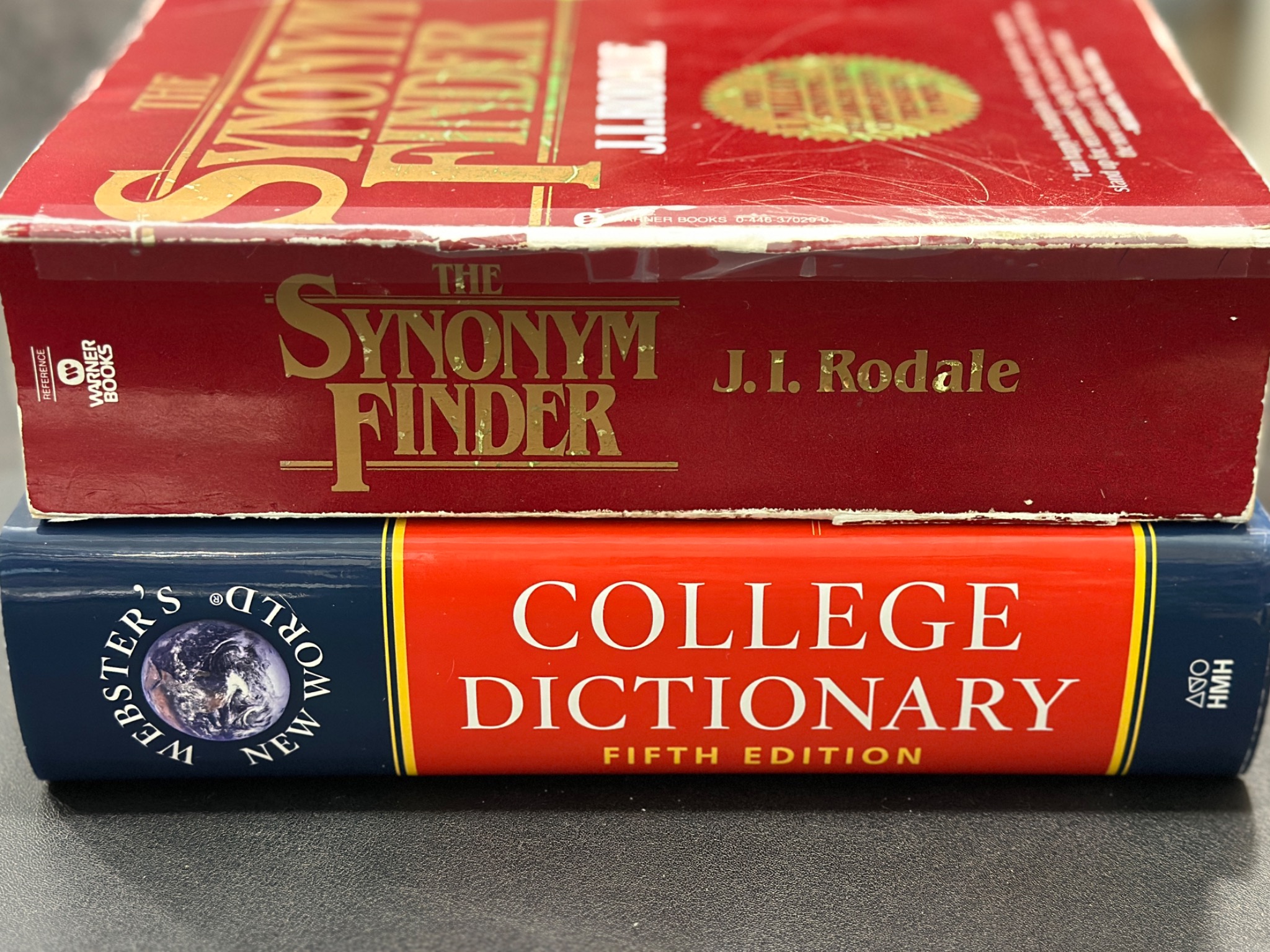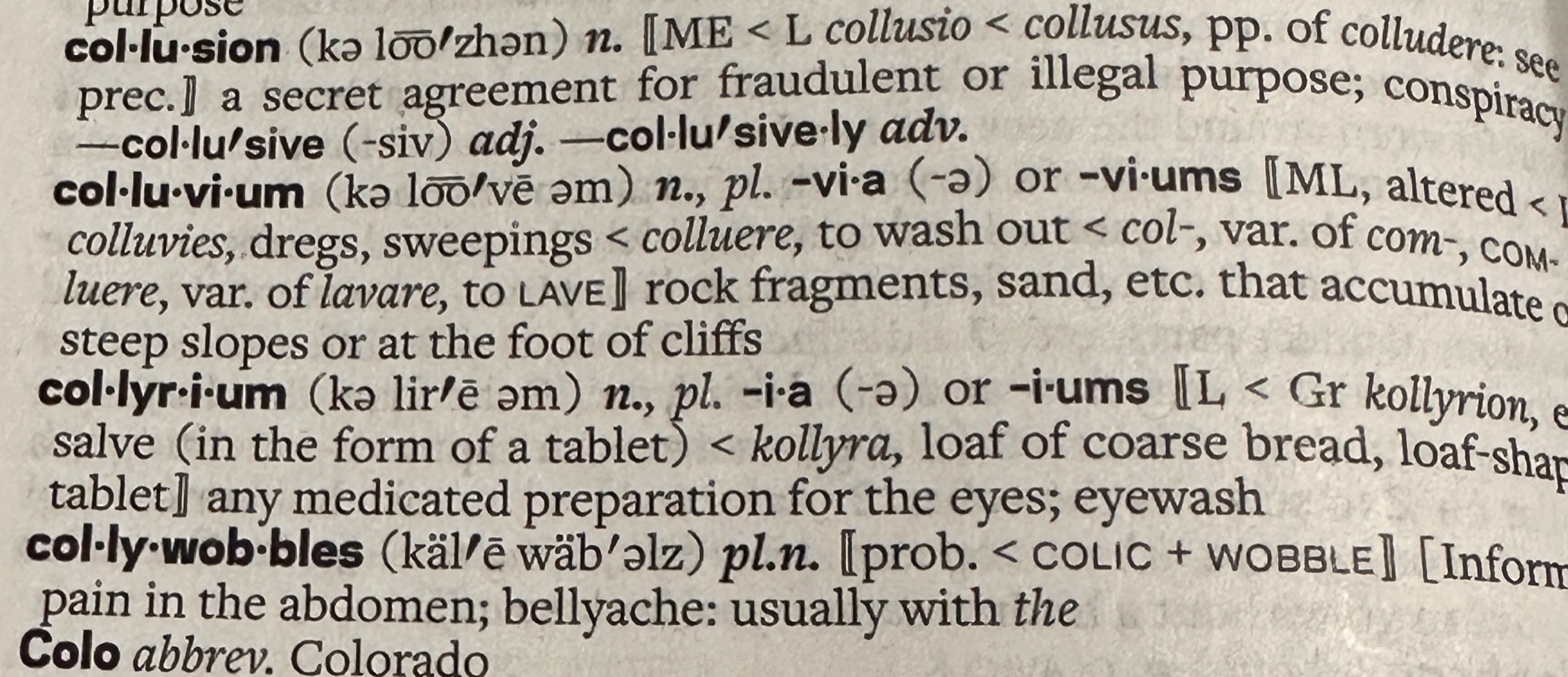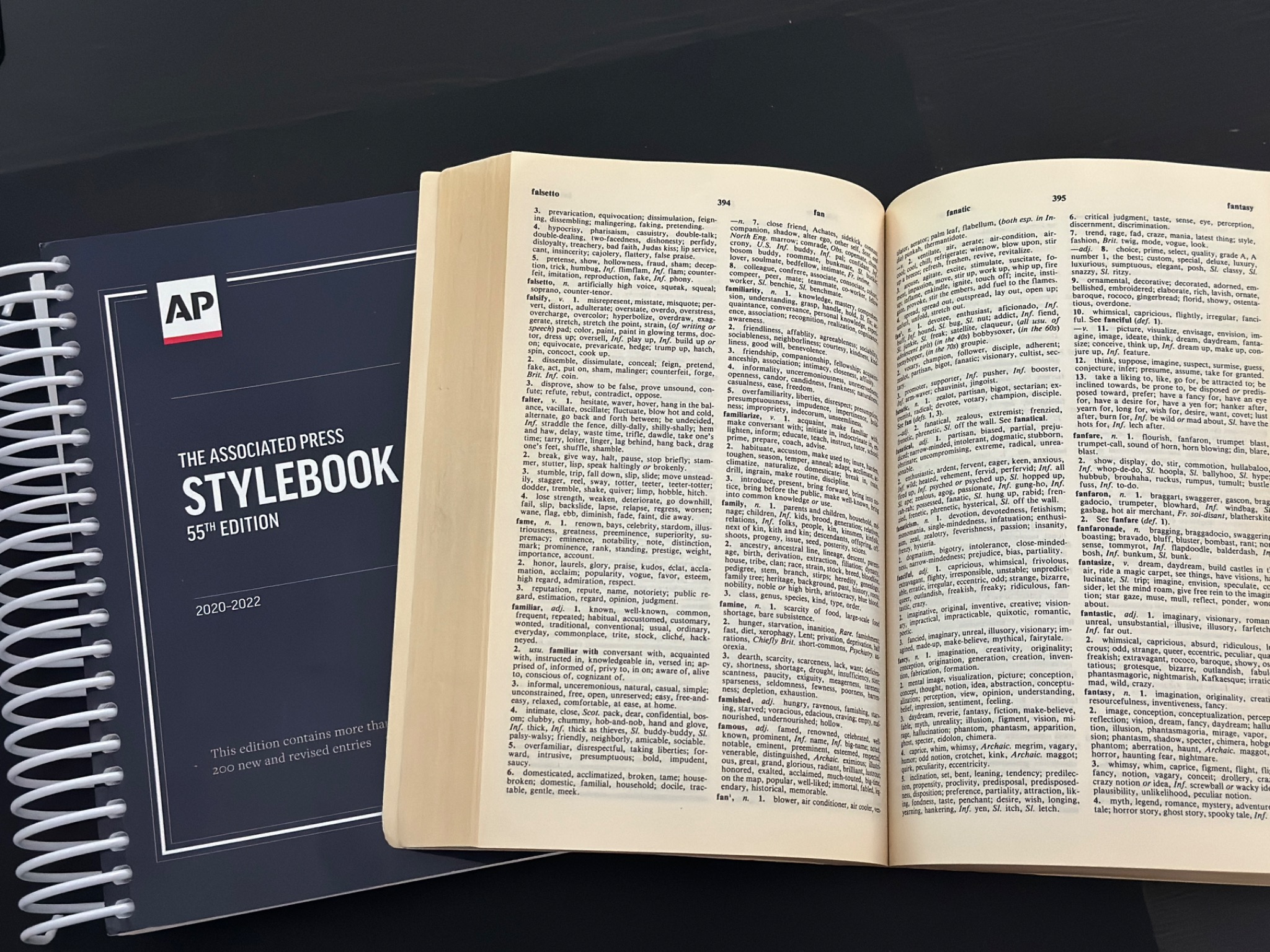
Praise for Print Reference Books
From 2008 to 2014, I worked as a business reporter and editor for The Daily News in Memphis. My beats included logistics, real estate and sports business, which I covered for several years before taking an editing position.
I held both roles in an era when newsrooms grew increasingly dependent on digital resources, yet when it came to reference books needed for the job, like dictionaries and stylebooks, I maintained a penchant for print. A penchant that’s endured.
Such adherence to an antiquated medium amid the rise of digital tools might sound archaic. But if you don’t already know me and my predilections—or if you couldn’t tell from the subject matter of my blog’s first few entries—the “old school” label is pretty on-brand for me.
In the latest installment of “A Fan’s Notes,” I trace my preference for print dictionaries and other reference books over their digital counterparts—including the unlikely word that made me a lifelong fan.
What does THAT word mean?
One morning in 2012, while editing a government corruption story, I came across a word the reporter used to describe some elected officials’ illicit action: collusion.
Though I knew what the word meant and had edited many stories about corrupt elected officials, I wanted to ensure collusion was the right choice here. Were these officials indeed colluding? Would another word work better? I turned to my hardbound dictionary to verify.
I understood that it was faster to find a definition online. But I preferred leafing through the pages of a reference guide—be it a dictionary or thesaurus (my two favorites are pictured above)—for several reasons.
One, it provided a pause in the chaos of the moment. Whether writing or editing a story, that small act allowed me time to breathe, feel the paper in my fingers and give my eyes a break by looking away from the screen for a minute. Two, it could lead to a new understanding of the targeted word, including other definitions I hadn’t known. And three, I might stumble across a word I’d never seen or heard.
I looked up collusion in Webster’s New World Collegiate Dictionary—the official dictionary of the Associated Press for many years until a recent switch to Merriam-Webster (a big deal for journos)—and landed on P. 294, which contained the words between collegian and colonel.
My eyes scanned the page for collusion but instead spotted an entry I didn’t recognize. “Oh,” I thought, “now there’s an interesting word. What does that mean?”
[Sidebar: At this point, especially if you’ve ever worked for a daily newspaper, you might be thinking, “You’re on deadline, Smith. Open your iPhone’s dictionary app and get on with it.” If you were a reporter, designer or pressman waiting for me to finish so we could get the paper out that day on time, you would definitely be thinking that.]
The word I stumbled upon, the word that caught my eye, the word that justified lingering on the page just a little longer despite the ticking clock and approaching deadline was ... collywobbles.
I was unfamiliar with it, so I took a few seconds to read and contemplate its definition.
collywobbles (ˈkälēˌwäb(ə)lz/) pl.n. <probably COLLIC plus WOBBLE> [Informal] pain in the abdomen, bellyache: usually with the

I said it out loud and smiled. Collywobbles. I liked it immediately. It’s a fun word to say (try it!), even though it describes something not so fun. And it instantly became part of my vocabulary.
Since that discovery, whenever I have an upset stomach, become nervous about something or feel a little off but can’t pinpoint the exact cause, collywobbles is my go-to word. It’s also my reminder to opt for print over digital when writing or editing.
For the record, I did return to editing that story. Collusion was the correct choice. And we made deadline.
An excellent, peerless, superior thesaurus
The dictionary isn’t the only reference book where I prefer perusing the print version rather than clicking an app or visiting a website.
I rely on the spiral-bound “Associated Press Stylebook” for similar reasons, having used it in almost every reporting and editing gig in my 20-year career. Flipping through the “journalist’s bible,” as it’s known, can take someone down a rabbit hole learning the rules of style, usage and punctuation. I fully understand that probably sounds fun only to a reporter. (I also recognize that non-writers who don’t use language reference books daily may struggle to relate to any part of this blog.)
My third example also has a newsroom backstory. When I worked as a sports reporter for the Anchorage Daily News in the early to mid-2000s, our department had a copy of “The Synonym Finder,” an alternative thesaurus we used to vary our verbiage and find new ways to explain, for example, how a team beat, pummeled, lambasted or clobbered its opponent.
I found myself referencing the department’s copy so often that I bought one and have used it for two decades—as evidenced by several scratches and a generous amount of tape keeping the cover attached.
Whenever I feel trapped with the same tired words and want to see what other choices might liven my copy, “The Synonym Finder” sits on the corner of my desk, alongside other resources, eager to help.

The book’s cover blurb from William Safire, a former New York Times reporter, is perfect: “I am happy to champion, defend, patronize, espouse, stand up for, recommend, sing the praises of, tout and hype the new edition of ‘The Synonym Finder.’”
I feel the same way about it. Unfortunately, this book isn’t being printed anymore—that’s true of many such reference books as more go digital, including the most popular dictionaries—but it’s still available on Amazon. If you’re a word nerd like me, grab a copy before it disappears, vanishes, fades away or becomes obsolete.
A recurring theme
The slow demise of print reference books reminds me that it’s not always easy to be a fan of something. A favorite team stinks. A favorite director acts creepy. A favorite author never recaptures the glory of their first book. And sometimes, a favorite resource is phased out and replaced by newfangled apps on our iPhones.
Hard to accept though also understandable. I realize how cumbersome and unwieldy it must seem to keep those giant tomes on my already cluttered desk when the information they contain, plus so much more, is a click away on my phone or laptop.
Yes, I occasionally use those apps for my job and writing this blog, but nothing can replace the experience of flipping through those reference books as I ponder a sentence, craft a story or rethink a headline. Who knows what discoveries await?
It’s another example of holding onto something I love, even when it’s undeniably out of style or past its prime. I believe that’s what being a fan—an old-school fan, anyway—is all about.
Author’s note: This is the first in an occasional series on the writing life— something I’ve been a fan of for many years. Look for future blogs on how I broke into the biz, writing as a side hustle, my favorite resource guides and more.

0 Comments Add a Comment?